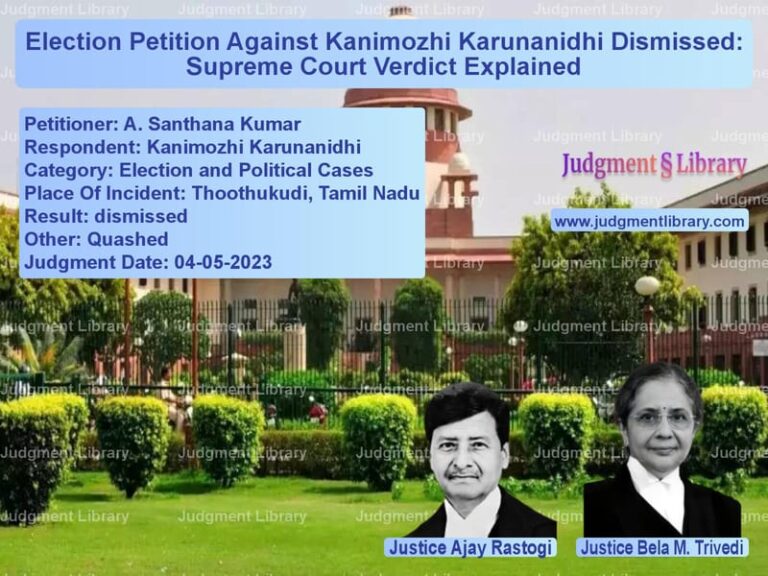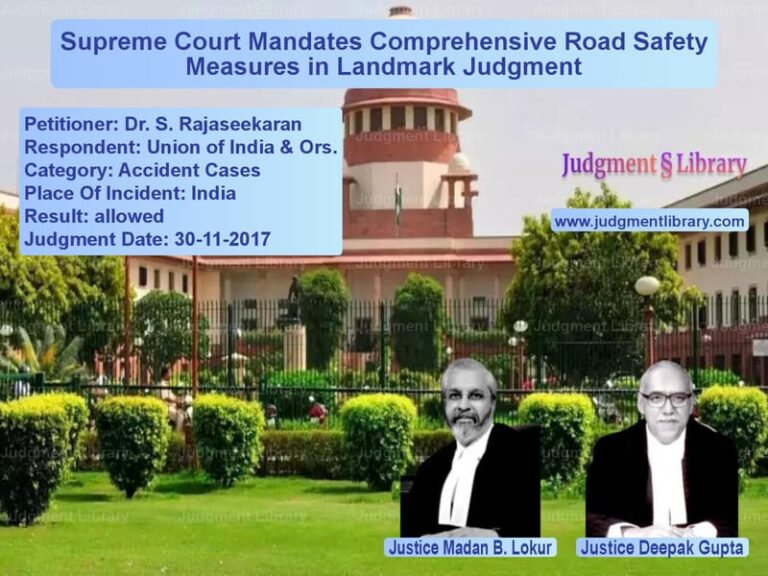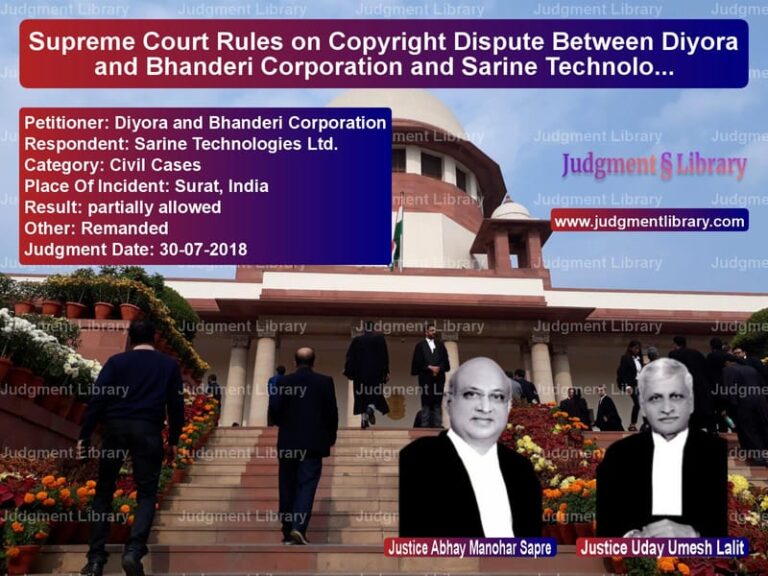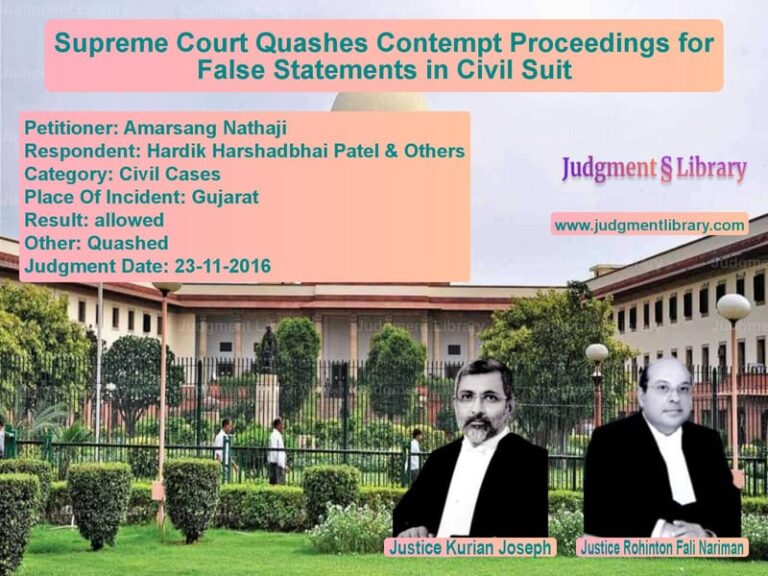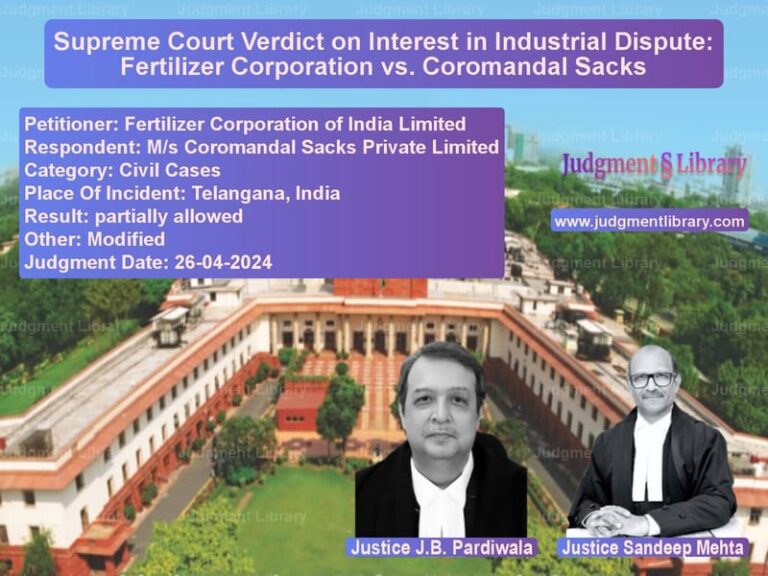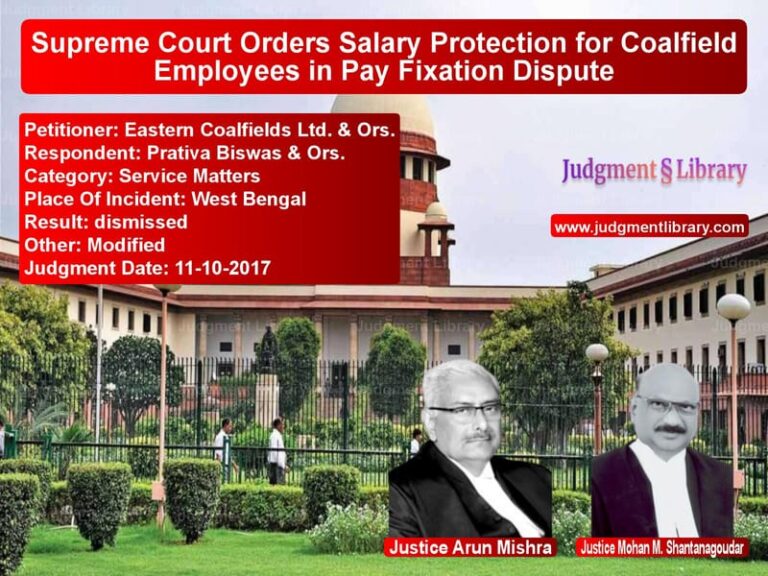Supreme Court Orders Appointment of Health Workers in Uttar Pradesh
The Supreme Court of India recently ruled in the case of Kumari Laxmi Saroj & Ors. vs. State of U.P. & Ors., directing the appointment of female health workers who were denied employment due to a delay in obtaining registration from the Uttar Pradesh Nurses and Midwife Council. The Court overturned the Allahabad High Court’s decision, ensuring that candidates who applied for registration on time were not penalized for administrative delays.
The ruling provides much-needed relief to aspirants who were found meritorious but were disqualified due to circumstances beyond their control.
Background of the Case
The dispute arose when the Uttar Pradesh government issued an advertisement for recruiting Health Workers (Female). The advertisement required candidates to possess a valid registration with the Uttar Pradesh Nurses and Midwife Council (U.P. Council) at the time of document verification.
The key timeline of events was as follows:
- December 15, 2021: The Uttar Pradesh government issued an advertisement for Health Worker (Female) posts.
- January 5, 2022: Last date for submitting applications.
- 2021: The appellants, who were already registered with the Madhya Pradesh Nurses and Midwife Council (M.P. Council), applied for registration with the U.P. Council.
- 2022: Due to administrative delays, their U.P. Council registration was issued after document verification, leading to their disqualification.
- 2022: The Allahabad High Court dismissed the appellants’ writ petition, holding that the requirement for U.P. Council registration was mandatory.
- December 15, 2022: The Supreme Court overturned the High Court’s decision.
Arguments by the Appellants (Health Worker Candidates)
The petitioners contended:
- They applied for U.P. Council registration before the advertisement date and were not responsible for the delay.
- The M.P. Council had issued No Objection Certificates (NOCs), and they met all other eligibility criteria.
- Their candidature was wrongly rejected, despite their compliance with the essential qualifications.
- The High Court misread the law by failing to consider that they had completed all procedural requirements on time.
Arguments by the Respondents (State of Uttar Pradesh)
The state government countered:
- The eligibility criteria clearly required registration with the U.P. Council at the time of document verification.
- The appellants were not ineligible due to merit but because they failed to meet a procedural requirement.
- Allowing such candidates would violate recruitment norms and set a wrong precedent.
Supreme Court’s Judgment
The Supreme Court ruled in favor of the appellants, holding:
- The appellants applied for U.P. Council registration well before the recruitment deadline.
- The delay in issuing registration was beyond their control and should not disqualify them.
- “For no fault of theirs, the appellants could not have been made to suffer.”
- The decision in Narender Singh vs. State of Haryana (2022) applies, where the Court held that candidates should not be penalized for procedural delays by authorities.
Key Precedents Cited
The Supreme Court referred to multiple landmark cases, including:
- Narender Singh vs. State of Haryana (2022): Established that candidates should not be penalized for delays beyond their control.
- Union of India vs. Gopi Chand (2020): Held that recruitment conditions must be interpreted fairly to prevent injustice.
- State of Bihar vs. Madan Mohan Singh (2010): Reinforced that procedural delays by authorities cannot be used to disqualify candidates.
Impact of the Judgment
This Supreme Court ruling has significant implications:
- Protects candidates’ rights: Ensures that aspirants are not unfairly disqualified due to bureaucratic delays.
- Clarifies recruitment norms: Establishes that procedural delays should not override substantive eligibility.
- Prevents administrative injustice: Encourages authorities to process registrations and other formalities promptly.
Conclusion
The Supreme Court’s ruling in Kumari Laxmi Saroj & Ors. vs. State of U.P. & Ors. ensures that recruitment processes remain fair and do not disadvantage candidates due to administrative delays. The judgment mandates that candidates who applied for registration on time must be considered for appointments if they meet all other qualifications.
The verdict sets an important precedent for future recruitment cases, ensuring justice and fairness in government hiring processes.
Petitioner Name: Kumari Laxmi Saroj & Ors..Respondent Name: State of U.P. & Ors..Judgment By: Justice M.R. Shah, Justice Hima Kohli.Place Of Incident: Uttar Pradesh.Judgment Date: 15-12-2022.
Don’t miss out on the full details! Download the complete judgment in PDF format below and gain valuable insights instantly!
Download Judgment: kumari-laxmi-saroj-&-vs-state-of-u.p.-&-ors.-supreme-court-of-india-judgment-dated-15-12-2022.pdf
Directly Download Judgment: Directly download this Judgment
See all petitions in Recruitment Policies
See all petitions in Public Sector Employees
See all petitions in Judgment by Mukeshkumar Rasikbhai Shah
See all petitions in Judgment by Hima Kohli
See all petitions in allowed
See all petitions in Quashed
See all petitions in supreme court of India judgments December 2022
See all petitions in 2022 judgments
See all posts in Service Matters Category
See all allowed petitions in Service Matters Category
See all Dismissed petitions in Service Matters Category
See all partially allowed petitions in Service Matters Category


